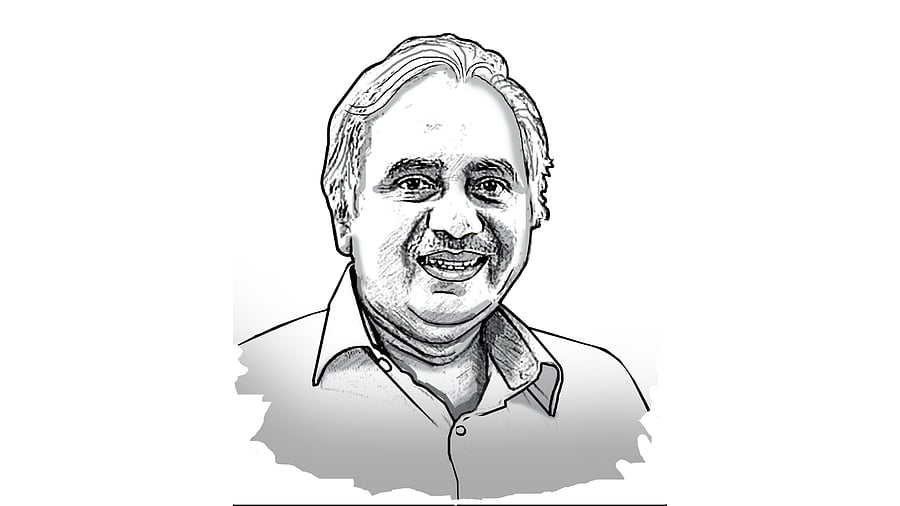
Seshadri Chari reads between the lines on big national and international developments from his vantage point in the BJP and the RSS. X:@seshadrichari
Credit: DH Illustration
Donald Trump’s disruptive moves continue to heighten geopolitical volatility. The latest warning by the US to raise secondary tariffs on India if Trump’s talks with Russian President Vladimir Putin fail adds to the uncertainty. Trump’s statement that Putin agreed to the Alaska meeting because of his additional tariff on India for buying Russian oil says much about the US president’s foreign policy framework.
It is doubtful if Trump started the talks with Putin – the first round has been inconclusive – only to end the Russia-Ukraine conflict. After a series of failures in bringing about a ceasefire, Trump now expects Russia and Ukraine to end the war after a bilateral deal that keeps Ukraine out of the negotiations.
Ukraine has already protested that there can be no meaning in a truce without Russia vacating the occupied territories in Ukraine. Ukraine can no longer fight the war without the support of the European Union and the US, which is already in withdrawal mode. Russia, on the other hand, appears militarily superior and is negotiating from a position of strength. India has appealed to the two nations to settle the issue between them – “war is not the solution”, as Prime Minister Narendra Modi told Putin.
In these circumstances, it is clear that India is not in the way of a ceasefire. So, what is Trump concerned about? If his intention through the talks is to stop the war, he has to accommodate Ukraine and worry about building consensus among the two parties in conflict. But strangely, the US has threatened to hike tariffs on India if the talks fail. Trump’s actions are influenced by India’s refusal to stop buying Russian oil and New Delhi’s general non-submission to his whims and fancies.
India has made it clear that it would continue to buy oil from Russia or any other source as long as the price is competitive and its energy security needs are taken care of. Besides energy needs, New Delhi is determined to fortify its defence capabilities to secure its borders, strengthen domestic manufacturing, and become more competitive in exports. High tariffs hinder exports, and India needs to overcome these hurdles put in its way by the Trump administration.
New Delhi would be ready to settle the tariff-related issues bilaterally with the US to the best advantage of the two countries, but conduct its external trade with the rest of the world, and formulate foreign policy within the framework of strategic autonomy. No country can dictate economic and foreign policy prescriptions to New Delhi.
In this context, it is important for American policymakers, especially Trump, to understand that India values its relations with the US as an equal partner sharing democratic values and human dignity. A breakdown of mutually beneficial economic engagement, a serious trust deficit, and stark divergence in strategic and geopolitical outlook are, undeniably, prescriptions for going back to the time of “estranged democracies” from the Cold War era.
Soon after attaining independence and during the initial years of the Cold War, New Delhi pursued a policy of non-alignment but tilted more towards the then Soviet Union, which strongly supported India and vetoed anti-India resolutions in the United Nations. Post-Cold War American presidents made important course corrections and avoided hyphenating an economically emerging, democratic India with a radical Islamist Pakistan, a failed economy, and a breeding ground for terrorists.
But the trigger-happy generals of Pakistan were quick to shift their allegiance to China and firm up benefits under the China-Pakistan Economic Corridor (CPEC). Now, the generals have pulled the red carpet from under Beijing’s feet and are rolling out a green corridor for Trump in Balochistan, for the Americans to dig for non-existent oil. Only the naïve would believe that China and America will work together in Pakistan for the benefit of the three without causing harm to their respective national interests and self-esteem.
Trump is free to allow himself to be taken for a ride in the wild deserts of Balochistan. He would be well advised not to burn bridges with India, now a strong economy which is self-sufficient in defence and nuclear capabilities. India is a Global South leader, and it has successfully displayed its worldview of peace and progress as against the American agenda of fuelling the domestic economy through wars and an arms race. Trump’s erratic trade and foreign policies will hurt American interests domestically and globally, more than causing any serious setback to India’s goals or global stature.
